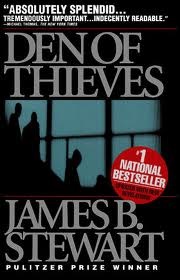When other countries are in help, US gave free aid. But when US are in trouble, countries offer help... but for a price?At least 22 nations—including Britain, home country of beleaguered oil company BP—have offered oil-collecting skimmers, boom, technical experts and more to help the U.S. cope with its worst-ever environmental disaster. But their generosity comes with a price tag.
Foreign countries around the world have offered to help the U.S. battle its worst spill in U.S history, but only Mexico has offered anything free of charge.
The State Department confirmed that nearly every offer of equipment or expertise from a foreign government since the April 20 oil rig explosion would require the U.S. to reimburse that country.
The offers reveal a hard truth about the United States' international friendships: With the U.S. widely regarded as the world's wealthiest nation, there is a double standard regarding foreign aid after a crisis, especially with offers from relatively poor countries.
U.S. disaster aid is almost always free of charge; other nations expect the U.S. to pay for help.
"These offers are not typically offers of aid," said Lt. Erik Halvorson, a Coast Guard spokesman. "Normally, they are offers to sell resources to BP or the U.S. government."
Only Mexico, with wide swaths of poverty among its population, offered the U.S. anything for free. It said it would give the U.S. government some containment boom. BP separately purchased 13,780 feet of boom and two skimmers from Mexico in early May, according to the State Department.
The stingier countries include:
—Britain, America's closest ally and headquarters to London-based BP, said it would sell chemical dispersants and containment boom for use cleaning up the spill. London's mayor, Boris Johnson, has previously complained about what he called "buck-passing and name-calling" in the U.S. against BP.
—Russia, which received $70.5 million in U.S. aid last year and $78 million in 2008, said it could send boom, oil containers and ships if the U.S. paid for them.
—China offered containment boom for a price. When a major earthquake struck in northwest China in April, the U.S. quickly gave $100,000 for relief supplies, and after another major earthquake in southwestern China in 2008, the U.S. donated $500,000 through the U.S. embassy in Beijing to the Red Cross to buy and deliver emergency supplies there. Congressional researchers estimate the U.S. spends roughly $30 million on foreign aid to China each year, including educational exchanges and health programs.
—Israel, which receives roughly $3 billion in U.S. military aid and other assistance, also said it would send containment boom, if the U.S. paid for it.
—France offered to send chemical dispersants and equipment to clean oil off birds but only for a price.
—Kenya, which received more than $24 million in U.S. aid last year and $11 million in 2008 for humanitarian aid, offered to send fire boom but only if the Obama administration paid.
—Vietnam offered a ship with oil-collecting sweep arms if the U.S. paid for it. The U.S. spent $102 million in all types of aid to Vietnam in 2008. When Typhoon Ketsana hit that country last fall, affecting 3 million people, the U.S. spent $100,000 on relief operations.
—Romania made a "general offer of support" but asked the U.S. government for payment. After heavy rains sent in July 2008 sent four major rivers over their banks and killed five people, the U.S. gave $50,000 for emergency supplies.
—Croatia offered to send technical experts and plans, for a price. The U.S. gave Croatia $50,000 to buy local firefighting equipment in 2007 when more than 800 wildfires broke out during an unusually hot and dry summer.
Source.














